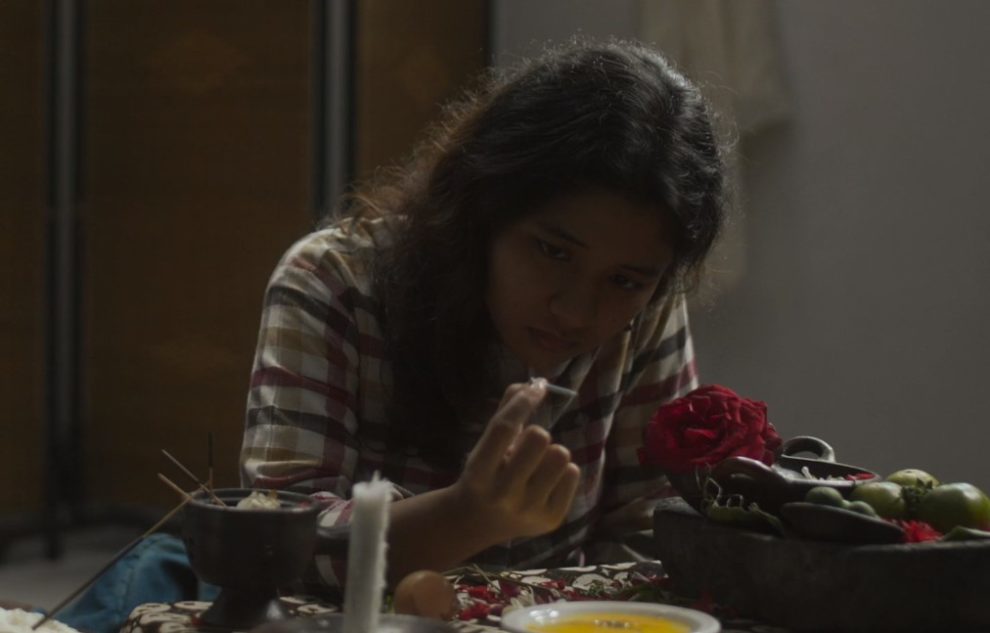Having been convinced that her mother's blindness is the result of someone wishing ill intent, Sri has been assisting her to weekly appointments in an attempt to dispel the evil energy. However, with no real progress being made, the family is advised to conduct the ‘Ruwatan' ritual, much to the discomfort of the blind woman.
“Pay Phone” review is part of the Submit Your Film Initiative

Focusing on ritualistic healing and the effect it has on a family, Ernest Lesmana's “Ruwatan” offers an intriguing portrait of family struggles while keeping the viewer a bit in the dark as to the larger context of his message. The obscurity comes by way of the ‘Ruwatan' ritual, a practice largely unknown outside Indonesia, and adding an ominous atmosphere to a practice, which at face value, seems harmless. Admittedly, there is a lack of knowledge online to research the subject to give competent commentary, but the short film makes the practice seem impressionable, uncomfortable and possibly a tool to exploit the vulnerable.
As a result, it becomes difficult to pin down the narrative or overall message for someone outside of the culture, making for a confusing experience. However, there are still key elements within the production that make up for the lack of grounding content.
Ernest Lesmana manages to create a realistic portrait between mother and daughter, particularly in the face of adversity that binds them together. Every aspect of the relationship seems plausible, the frustration of the situation, the reliance on the mother of her child, even their mannerisms seem to reflect a true familial bond. Whether this is a product of the actor's abilities or the direction of Lesmana, the portrayal captures a sincerity that eludes many budding filmmakers.
The rest of the production stays largely serviceable, but certain elements like pacing and atmosphere give the film an attention grabbing flow, nothing seems rushed and the audience is invited to take in the surroundings and situation. The score, well minimal, nicely punctuates the odd moment of tension, and the cinematography is competent in its use of framing and blocking. Overall, the presentation does not have a strong enough identity to stand out, but shows a competent understanding of the various elements of filmmaking.
“Ruwatan” is framed by a religious practice which will never enter the consciousness of any viewer outside of native Indonesia, making the overall message obscure to the point of severe disconnect. However, the production is well presented in most aspects, and exceptional in its character portrayal. Consequently, the short film may not excite many viewers, but does feel like it is building towards something greater from director Ernest Lesmana.















